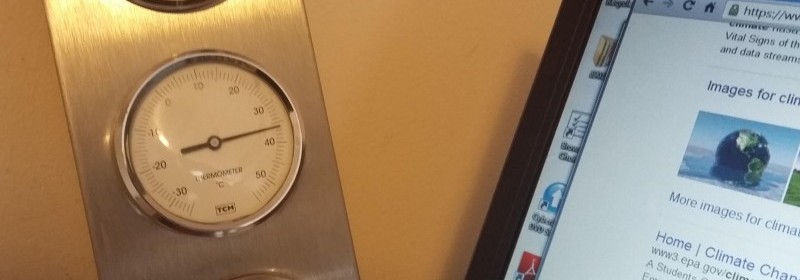Wages set to fall unless warming is tackled

Researchers say the economic costs of failing to take action on climate change will be much greater than previously thought – with average global incomes cut by almost a quarter.
Even the strongest economy can overheat. As soon as the average annual temperature goes beyond 13°C or 55°F, productivity starts to drop. And, unexpectedly, new research in the US shows that the economic climate and the meteorological climate are in step.
The findings reveal a higher-than-expected global economic cost of climate change – and that even wealthy countries will see an economic downturn by 2100 unless action is taken to mitigate global warming.
The research is the result of collaboration between Marshall Burke, assistant professor of Earth System Science at California’s Stanford University, and the University of California Berkeley’s Solomon Hsiang, associate professor of public policy, and Edward Miguel, Oxfam Professor in Environmental and Resource Economics.
A report in Nature journal that analyzed the economic performance of 166 countries over a 50-year period between 1960 and 2010, matched each country’s output in years of normal temperatures to those of unusually hot or unusually cold spells.
Unequivocal conclusions
“We show that overall economic productivity is nonlinear in temperature for all countries, with productivity peaking at an annual average temperature of 13.6°C and declining strongly at higher temperatures,” they report.
Their unequivocal conclusions are the same for rich countries and for poor countries, and they are true for agricultural and non- agricultural outputs.
“These results provide the first evidence that economic activity in all regions is coupled to the global climate, and establish a new empirical foundation for modelling economic loss in response to climate change, with important implications.”
They then warn that if the future is anything like the past, then unmitigated global warming is expected to reshape the global economy by reducing average global incomes by 23% by 2100.
The same process will also widen global inequality. Around three quarters of all the nations surveyed would be poorer than they would have been without climate change.
The research, like all economic forecasts on a global scale, is liable to provoke contention, as it looks at one very big, crude measure and discounts all the individual political and international troubles that might beset any particular nation at any time.
It is also clearly timed to concentrate governmental minds on the forthcoming UN summit in Paris to decide upon the global response to climate change − which is the consequence of soaring fossil fuel combustion, rising levels of atmospheric greenhouse gases, and the predicted and potentially catastrophic increase in global annual average temperatures.
“The benefits of action are much greater than we thought, because the costs of inaction are much greater than we thought”
Both Dr Burke and Professor Hsiang have a record of thinking on a global scale. They have proposed a link between average climate and civil conflict, and have done so at least twice. Now they have done the same for climate and day-to-day money-making.
There have been separate studies of individual national responses to climate. For example, the Australians are still counting the cost of record temperatures that occurred in the summer of 2013-14.
“Many very careful studies show clearly that high temperatures are bad for things like agriculture and labor productivity, even in rich countries,” Dr Burke says.
“While these relationships showed up again and again in the micro data – for example, when looking at agricultural fields or manufacturing plants – they were not showing up in the existing macro-level studies, and we wanted to understand why.”
Hill-shaped links
So the three authors decided to trust the data and look instead at the techniques of analysis. They found a curve of hill-shaped links between temperature and productivity, with a 13°C peak for the years when economies did best.
“The data tell us that there are particular temperatures where we humans are really good at producing stuff,” Dr Burke says. “In countries that are normally quite cold – mostly wealthy northern countries – higher temperatures are associated with faster economic growth, but only to a point. After that point, growth declines rapidly.”
The implication is that neither the wealthiest nations nor the poorest can afford to let climate change happen as the resultant economic cost will be much greater than the cost of national or international action to limit the rise in the global thermometer.
“Many other researchers have projected economic impacts under future climate change,” Professor Hsiang says. “But we feel our results improve our ability to anticipate how societies in coming decades might respond to warming temperatures.”
Dr Burke adds: “The benefits of action are much greater than we thought, because the costs of inaction are much greater than we thought.”
Source: Climate News Network

 Print
Print